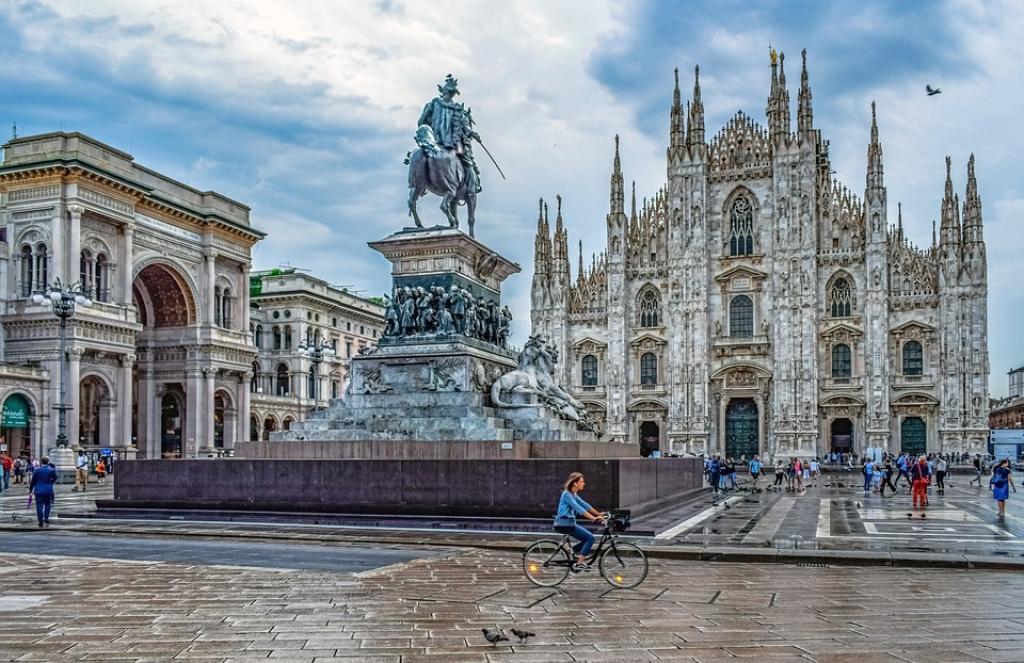Thessaloniki gets ready for its metro launch in November
The underground rapid transit lines have been under construction for almost two decades due to various project delays
 TheMayor.EU logo
TheMayor.EU logo 
Resilience starts being a recognized principle at the heart of more and more European urban policies
Barcelona, Greater Manchester, Helsingborg and Milan comprise four of the first six cities awarded the title
Europe is leading the way in exemplary resilience and a testament to that is that 4 out of the first six Resilience Hubs, announced by the United Nations Office for Disaster Risk Reduction (UNDRR), are located on that continent. Three of the cities – Barcelona, Milan and Helsingborg - are EU cities, accompanied by the Greater Manchester metropolis in the UK.
The cities were chosen by the Making Cities Resilient 2030 initiative and will serve three-year terms as Resilience Hubs, working to enhance city-to-city collaboration and inspire other communities to become more resilient to disasters.
The Resilience Hubs are part of the Making Cities Resilient 2030 (MCR2030) initiative, which launched in January this year, and of which TheMayor.EU is an official partner. Each city has developed local solutions to improve its ability to withstand and recover from various disasters and support shared learning.
“As disaster and climate risk grows, prevention on a global and local level will be critical. These Resilience Hubs exemplify the potential of cities to lead the way in disaster risk reduction and help build a more resilient world,” said Mami Mizutori, Special Representative of the Secretary-General for Disaster Risk Reduction and Head of UNDRR.
For example, Helsingborg (Sweden) combines emerging technology with municipal data to integrate disaster risk and resilience into urban planning. Interactive maps simulate risk scenarios throughout the city - such as heavy rain, raised sea levels and pollution. This ensures risk awareness at the early stages of city development.
All the chosen cities are tackling diverse municipal issues as well. Milan (Italy) is utilising green infrastructure to fight growing rain and temperature risks. It is also developing innovative financing mechanisms to deliver a green economic recovery post-COVID. “In a world that constantly changes, resilience is the only possibility for a city to continue developing in a fair, inclusive, and sustainable way,” explained its mayor, Giuseppe Sala.
Another key aspect of the Resilience Hubs initiative is the international collaboration. Each of the cities is taking their learnings and encouraging other cities to follow suit. Barcelona (Spain) has established itself as a centre for global cooperation on resilience serving as a mentor for policymakers in Tunis, Bogotá, and Gaza City.
Within the framework of the city-to-city cooperation program and the collaboration agreement with the UN-Habitat City Resilience Global Programme, Barcelona is currently working to offer technical support to the cities for the development of their resilience profiles.
The Catalonian capital’s administration trusts that this collaboration will allow them to advance in knowledge and in self-assessment of their vulnerabilities. Likewise, it will help them have a set of recommendations for resilience actions that can orient municipal policies for risk reduction. The hope is that this experience can be replicated in other cities.
Greater Manchester has revamped its resilience strategy this year, with particular attention to local flooding risks. Through the Moors for the Future partnership, for instance, the city aims to prevent flooding by addressing it at its source in the upper catchment area rather than mitigating its impact in the urban centre.
The announcement of the Resilience Hubs comes ahead of the European Forum for Disaster Risk Reduction, taking place in Matosinhos (Portugal), 24-26 November.

The underground rapid transit lines have been under construction for almost two decades due to various project delays

Now you can get your wine in Talence by paying directly in Bitcoin

That’s because the state has to spend money on updating the railway infrastructure rather than subsidizing the cost of the popular pass

Rethinking renewable energy sources for the urban landscape

The examples, compiled by Beyond Fossil Fuels, can inform and inspire communities and entrepreneurs that still feel trepidation at the prospect of energy transition

Now you can get your wine in Talence by paying directly in Bitcoin

The 10th European Conference on Sustainable Cities and Towns (ESCT) sets the stage for stronger cooperation between the EU, national and local level to fast track Europe's transition to climate neutrality.

At least, that’s the promise made by the mayor of Paris, Anne Hidalgo

The underground rapid transit lines have been under construction for almost two decades due to various project delays

At least, that’s the promise made by the mayor of Paris, Anne Hidalgo

Hostal de Pinós is located in the geographical centre of the autonomous region

Despite its church-y name, the district has long been known as the hangout spot for the artsy crowds

Urban dwellers across the EU are having a say in making their surroundings friendlier to people and the environment.

Forests in the EU can help green the European construction industry and bolster a continent-wide push for architectural improvements.

Apply by 10 November and do your part for the transformation of European public spaces

An interview with the Mayor of a Polish city that seeks to reinvent itself

An interview with the newly elected ICLEI President and Mayor of Malmö

A conversation with the Mayor of Lisbon about the spirit and dimensions of innovation present in the Portuguese capital














